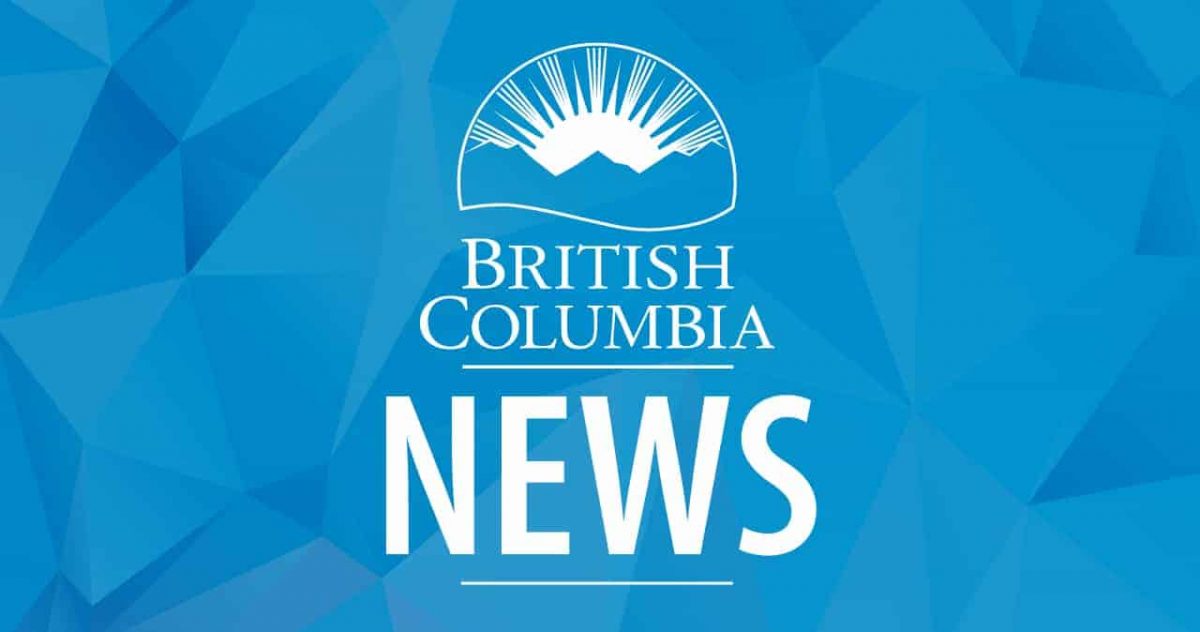
Mineral Tenure Act reform advancing
The Province is advancing work to reform the Mineral Tenure Act (MTA) in alignment with the United Nations Declaration on the Rights of Indigenous Peoples with a clear process for co-operation and consultation with First Nations in British Columbia and engagement with industry and all interested parties.
“Our government is taking steps to acknowledge our past and working to address the consequences of colonial legislation and policies, which have had lasting effects on First Nations. By doing this together, we are building a better future on the land, in communities, and for people in British Columbia,” said Josie Osborne, Minister of Energy, Mines and Low Carbon Innovation. “We are committed to the full transformation of B.C.’s mining regulatory system, including modernizing the Mineral Tenure Act, and this government-to-government work must be reflective of the shared interests and values of everyone who lives and works on these lands.”
The Province and First Nations Leadership Council (FNLC) continue to work on finalizing a shared vision for mining reform that will uphold and respect First Nations rights and title and is aligned with the UN Declaration, and build a responsible and healthy mining sector in British Columbia. The next steps modernizing the MTA focus on a distinctions-based consultation and co-operation process with First Nations as well as an engagement process with industry, non-governmental environmental organizations, local governments and interested British Columbians.
The Province is working in consultation and co-operation with First Nations to develop a vision for and implementation of MTA reform to achieve consistency with the UN Declaration. Multiple streams of an open and transparent consultation process include:
- engagement with all First Nations rights and title holders;
- a First Nations technical advisory group;
- existing tables and commitments that could inform MTA reform; and
- a technical working group with participants from the FNLC, First Nations Energy and Mining Council, and the B.C. government.
A public engagement framework outlines the Province’s process to maintain effective and proactive engagement and information sharing with industry associations, environmental and non-governmental organizations, other interest groups, and British Columbians to help inform MTA reform and implementation. Engagement opportunities will be available through a public-facing website and sessions for dialogue with industry associations, local governments and other interested groups.
Co-operation and consultation with First Nations and engagement with industry and interested groups will launch in March 2024.
Quotes:
Regional Chief Terry Teegee, BC Assembly of First Nations –
“Repealing and replacing the MTA for consistency with the UN Declaration, in affirmation of the self-determination and jurisdiction of First Nations in B.C., is a priority for First Nations, and a commitment of the Province. The current MTA is entirely inconsistent with and undermines our title and rights, including our inherent rights to self-determination and self-governance. It is inconsistent with the human rights standards articulated in the UN Declaration, and breaches the Province’s obligations to First Nations. There is a necessity for legal change and we are committed to the work that needs to be done so that First Nations’ inherent, constitutional and human rights are respected.”
Grand Chief Stewart Phillip, president, Union of BC Indian Chiefs –
“At the core of this legal reform is the simple admission that the Province’s current mineral tenure regime is founded upon and perpetuates racist, colonial wrongs. We must right those wrongs. We are at a point in this relationship and our shared history where the need for change is irrefutable and there is no turning back. The task before us is to establish a new mineral tenure and permitting regime that reflects legal pluralism and respects First Nations as title holders and governing jurisdictions in their territories. We support the Province in courageously embracing change.”
Robert Phillips, political executive member, First Nations Summit –
“Law reform in our work of reconciliation engages First Nations’ laws and legal orders and traditions. It is about constitutional partnership and designing new legal frameworks that express legal pluralism. First Nations’ exercise of their own inherent authority in their territories, including making decisions and determining whether to consent to proposed activities. It also includes the right to economically benefit from activities in their territories. We are excited to begin engaging in this work and advancing co-jurisdiction. However, we have heard from First Nations’ leadership that significant concern persists about the ongoing infringement of their inherent and Aboriginal rights as this work advances. We call on the Province to engage directly with rights holders to substantively address those concerns.”
Keerit Jutla, president and CEO, Association for Mineral Exploration –
“AME continues to seek transparency, certainty and clarity on the Mineral Tenure Act modernization process. Industry must play a more significant role in this process as a tenuring system that protects the intellectual property of our members and ensures their ability to explore is at the crux of our members’ interests. Inclusion of industry, consultation and reasonable timelines to engage must also be at the heart of a modernized mineral tenuring process. It is right to respect Indigenous rights, traditions and interests in land-use decisions. It is reasonable for the industry to seek clarity and certainty as we move forward so that we can ensure that B.C. remains a competitive, predictable and stable environment for mineral exploration and capital investment in the scope of reconciliation. We remain available to participate in the modernization of the Mineral Tenure Act pursuant to DRIPA.”
Quick Fact:
- Mineral Tenure Act reform is a mandate commitment and a government commitment made in the Declaration Act Action Plan.
Learn More:
To learn more about the consultation and cooperation and engagement processes, email: [email protected]
For more information about B.C. legislation, visit: https://strongerbc.gov.bc.ca/Legislation
